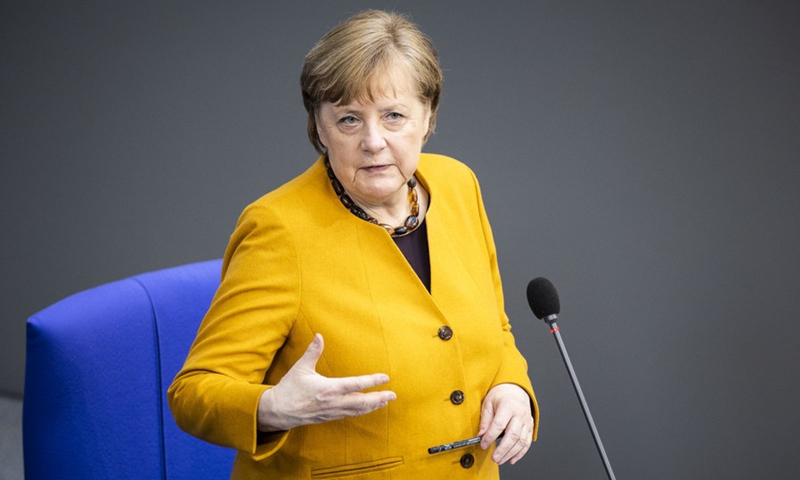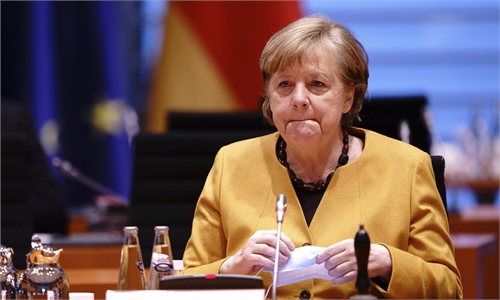Merkel’s US visit to tackle issues
German leader can expect welcome despite Nord Stream dispute

German Chancellor Angela Merkel attends a question session of the German Bundestag in Berlin, capital of Germany, on March 24, 2021. (Florian Gaertner/photothek/Handout via Xinhua)
German Chancellor Angela Merkel is set to visit Washington on Thursday, expecting to tackle issues dominating the transatlantic ties.The US government has planned welcoming programs to show solidarity between allies, while the German public is urging Merkel to push for solutions concerning energy and trade.
Merkel plans to deliver a speech on Thursday before her official meeting with US President Joe Biden, and she and her husband will be invited to dinner in the White House, according to the schedule released by Deutsche Presse Agentur.
White House Press Secretary Jen Psaki said the meeting will shore up the partnership between the two countries.
She said the "forward-looking visit" will focus on increasing cooperation in the coming months and years, hinting at topics on post-Merkel-era relations.
Merkel, in her fourth term, has made it clear several times that she will not seek another term in Germany's federal election scheduled for September.
It is Merkel's first visit to the US after Biden took office and probably her last one as German chancellor and some German media predicted that Biden might use an occasion during the visit to bid farewell.
The meeting comes weeks after Biden's Europe tour aimed at restoring transatlantic ties. Analysts said although Merkel may get a warm reception, unlike her last visit in 2018, Germany has to realize that the US government has shifted its focus to the Asia-Pacific region.
Topics between Merkel and Biden will include the COVID-19 pandemic, climate change, economic prosperity and international security based on shared values, according to a press release from the US embassy in Berlin.
However, none of the topics is drawing more attention than the Nord Stream 2 gas pipeline that links Russia to Germany via the Baltic seabed, bypassing Ukraine. Washington has long accused the project of posing a geopolitical threat to Ukraine, which is denied by both Germany and Russia.
The US government recently waived sanctions against German companies in the project, but the Russian ships and entities involved were not exempted.
Psaki said Biden continues to view the pipeline as a "bad deal," and she declined to comment on whether an agreement could be reached after the upcoming meeting.
Another pending issue is the 25 percent steel and 10 percent aluminum tariffs imposed three years ago by the US administration of Donald Trump.

